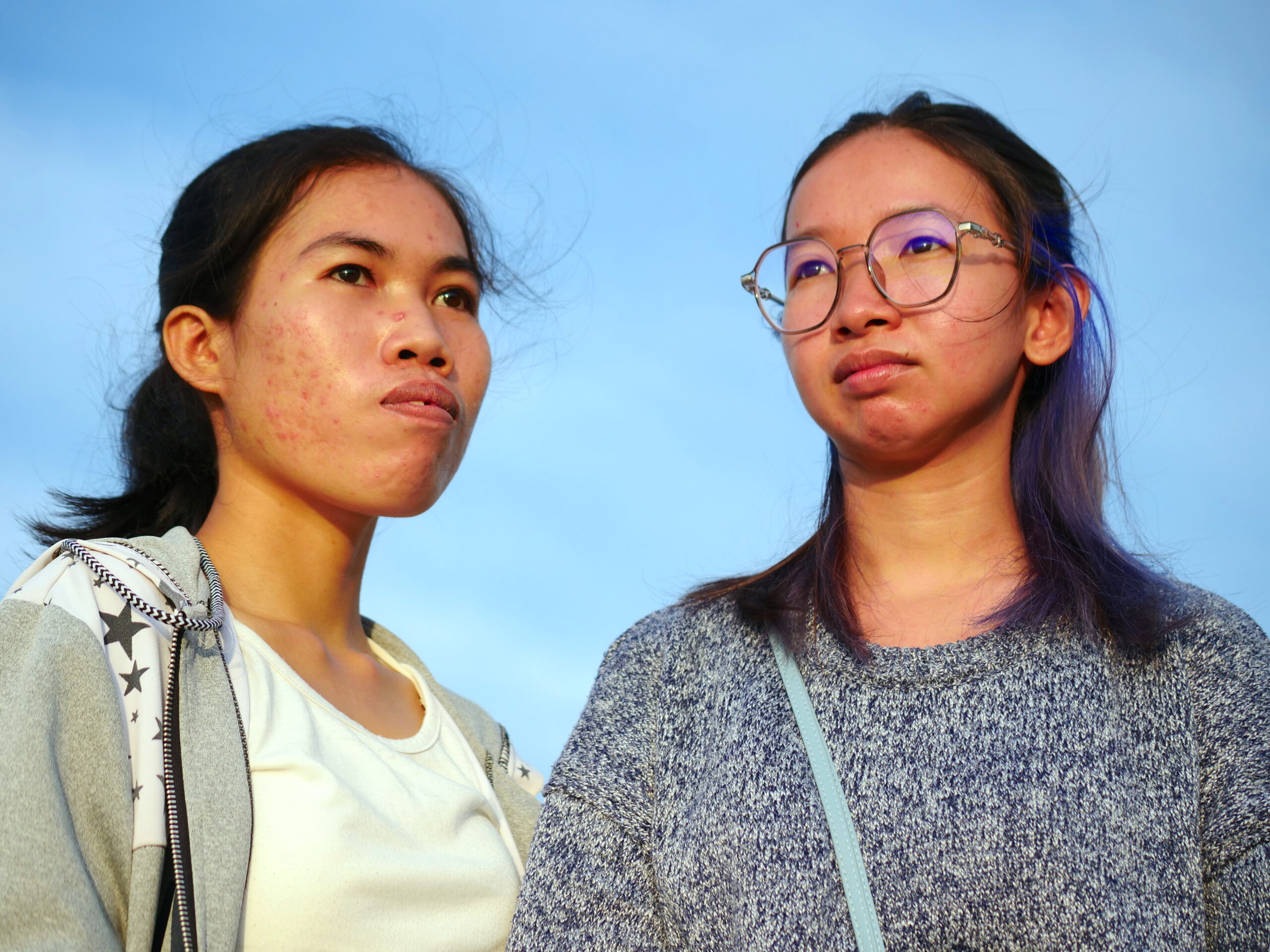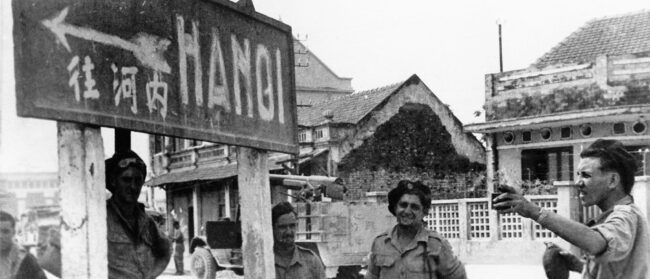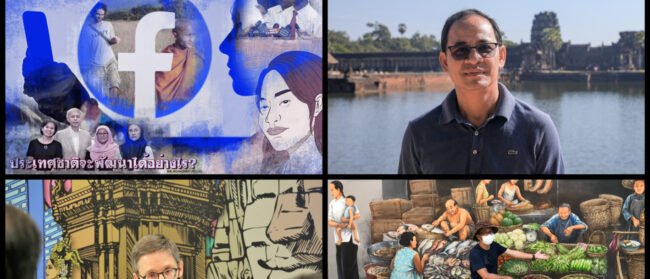The pillage and destruction of Cambodia’s natural environment led by the rich and powerful have been ongoing and well-documented in the Kingdom for decades, but few organisations have drawn attention to the issues as consistently and effectively as the environmental activist group Mother Nature Cambodia.
Outspoken campaigns, including fast-paced, informative videos, have led to significant results such as an end to construction of a hydropower project in Areng Valley in 2015 and a 2017 permanent national ban on sand exports from Cambodia.
But success has come at a cost. The group’s co-founder, Spanish national Alejandro Gonzalez-Davidson, was deported in 2015 while three activists were arrested in September 2020 on charges of incitement.
Among them was Long Kunthea, a 23-year-old university student preparing for a one-woman march to the prime minister’s office in Phnom Penh.
Three more Cambodian Mother Nature activists were arrested in June 2021 on charges of plotting against the government while taking photos of sewage water draining into Phnom Penh’s Tonle Sap river.
Among those, 26-year-old activist Sun Ratha and a colleague were later charged with insulting Cambodia’s king after the release of a hacked Zoom video call posted on an anonymous Facebook page.
The six Mother Nature activists were released on bail in mid-November following sustained international outcry, US government threats of economic consequences and increasing scrutiny of Cambodia’s human rights record as the Kingdom assumes the 2022 ASEAN chairmanship.
At the same time, Cambodian authorities released an additional 20 activists, human rights defenders and opposition figures whose imprisonments were deemed politically motivated by human rights groups.
While the six activists still await trial, Mother Nature was recognised in November with the Frontline Defenders Award 2021 by human rights NGO Frontline Defenders.
Several weeks after their release, Mother Nature campaigners Long Kunthea and Sun Ratha spoke with Samphors Sao and Jack Brook in Southeast Asia Globe’s office in Phnom Penh.
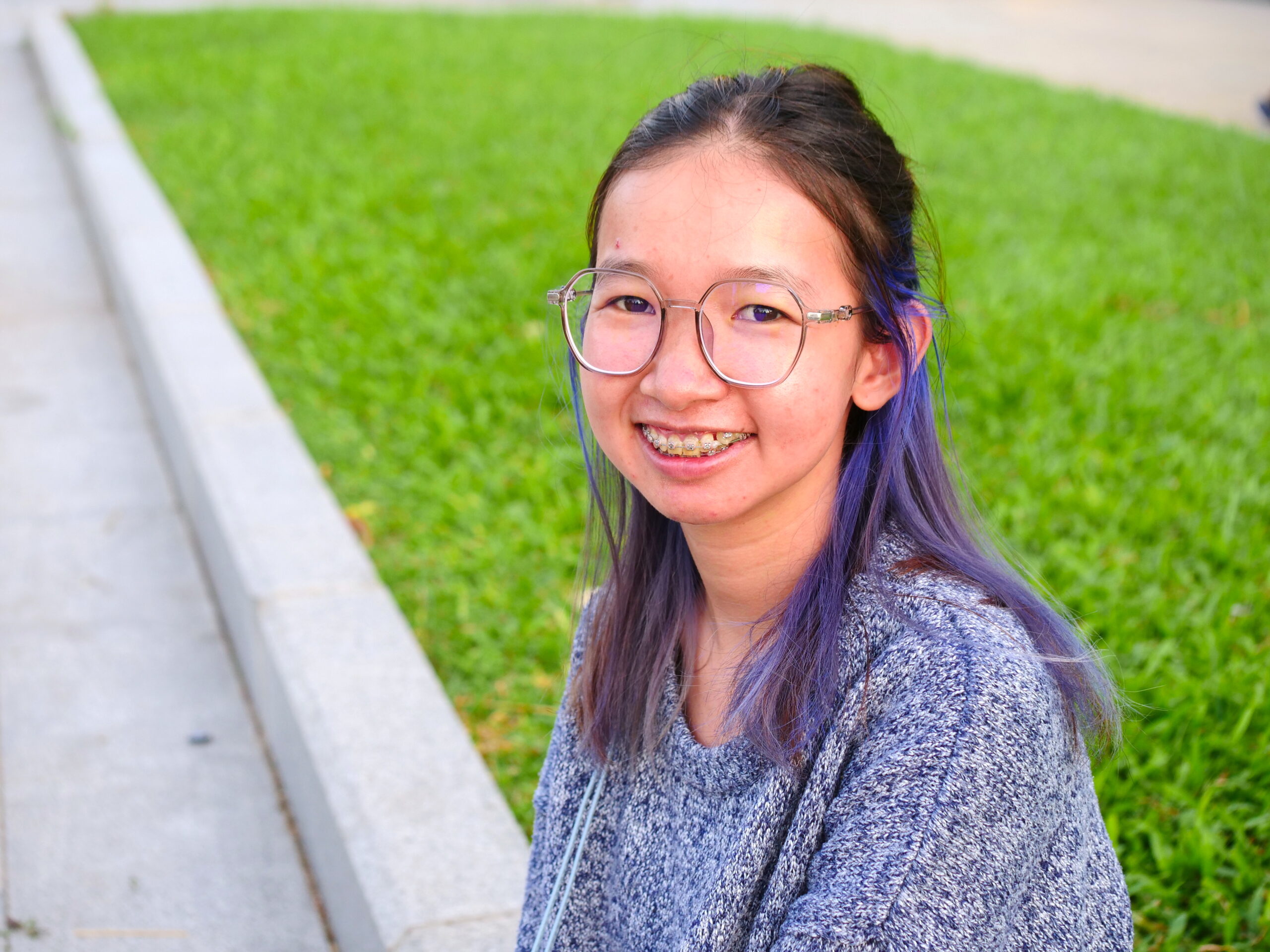
What happened when you were arrested?
Sun Ratha: I was taking photos of the sewage water at [Phnom Penh’s] riverside. I think they [the police] were already prepared to arrest me at any time. We saw a van waiting for us, there were four [police officers] waiting for me. I told them they don’t have to force me, I’ll go voluntarily. And then they sent me to Chba Ompov police station for interrogation and handcuffed my hands behind my back and started asking me questions, but I told them I won’t answer anything unless my lawyer arrived. So they took me to a dark room and turned off the light. I couldn’t see anything except a peeing pot and a pile of waste on the other side of the room. I developed a fear of darkness while staying there.
I heard interrogation sounds from the other room and I could hear the beatings of other prisoners in another room. It was so scary. I was afraid that they would beat me up too. I heard the sound of them shouting at my coworker, [Ly] Chandaravuth, scaring me even more. The moment passed and the police came into my room and told me that all of my group had agreed with the police and put all the fault on me, so I have to give them the passwords [to my phone and social media] and admit my wrongdoings. I told him that even if the rest of my group all agreed with you, I won’t admit to anything because I haven’t done anything wrong and I won’t answer any questions.
And then they tried to scare me by saying things like ‘Do you think you have a chance to go back and meet your family again? Do you really think that you can meet your family before their last breath?’ I don’t know for sure if it meant they would kill my family…. I almost cried.
I won’t admit to anything because I haven’t done anything wrong and I won’t answer any questions
Sun Ratha
I gathered all my courage to ask them what choices do I have in order to ease the handcuffs on me. They gave me only one choice: to put all the fault on my peers and Alex [Alejandro Gonzalez-Davidson] and make an apology video saying that Alex paid me to do all this stuff and point my finger at the activists that they want to target next. And then I said that’s not acceptable for me. After my court appearance, they still offered me the same option and I still remember that they interrogated me until 1 o’clock.
What have you been doing since the release?
Long Kunthea: We are still involved with Mother Nature as before, because that’s what we want to do and are passionate about. Our intentions are to protect natural resources, human rights. Nothing against the government like what they accused us of [incitement and plotting against the government.] However, after the release we all took a break and reunited with our families, so we haven’t taken any further action on the activities of Mother Nature yet.
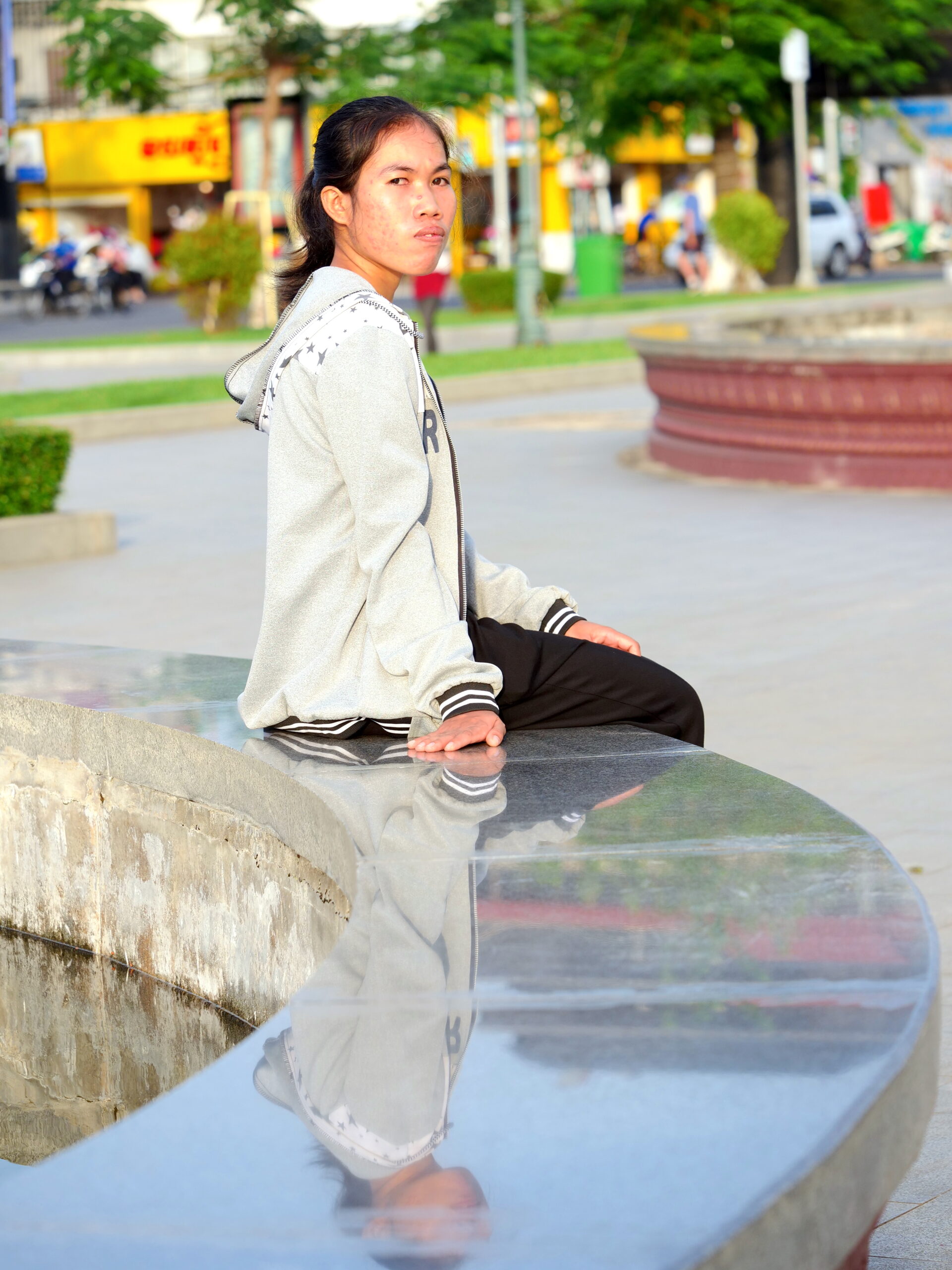
What inspired you to become involved with Mother Nature?
Ratha: I saw the negative impact of the sand mining on local communities in Kaong Kang [in Sihanoukville.] I saw the nice views of the mangroves and the vulnerability of the minority groups living in the area, who should have rights to protect their community and themselves.
Kunthea: I went to Koh Srolav [in Southern Cambodia], where sand mining was being done. I went to various places where I saw similar things happen… such as natural resources being destroyed, land grabbing, loss of local community incomes, etc. This changed my mindset of “the nature resource is being destroyed by the local community” to, in fact, “they’re the ones that are trying to protect nature from being destroyed.” I felt ashamed that most of the elder, minority groups have been fighting to protect the natural resource, while as a Cambodian youth filled with strength and knowledge I hadn’t done anything for nature. That’s what inspired me to become involved with Mother Nature.
Do you think your activity is politically motivated?
Kunthea: No, definitely not. Our work is to protect nature as a whole. It’s our nature that needs to be protected because the consequences will not only affect Mother Nature or the local minorities, but will affect all of us. If only the government would take our concern into account, it would improve their reputation as well. We never motivate the citizens to do something against the government. The government itself needs to cooperate with us, because in the end it will benefit all of us.
Ratha: Not even a bit. Because regardless of the political side, as long as they [the government] have the same motivation as us, we will be happy to work with them to protect the environment. For instance, events that we propose to do, they either don’t respond at all or just respond in the nick of time before the event and then try to accuse us for not informing the government before holding an event.
Our work is to protect nature as a whole
Long Kunthea
Why do you think the government appears to be so afraid of you?
Ratha: We can say that the government is afraid of us because we do deep research before doing anything. We have strong evidence to support our claims. We learn about the law… which is why the government cannot flip the word on us easily. And, most importantly, our work has always received the support from Cambodian people, making most of the work effective.
What have you learned about being a successful activist so far from your work in Mother Nature?
Ratha: What I love most is gaining knowledge of the natural resources and environment and learning about the way to research information before publishing or starting any activism campaigns. I have learned… to adapt and work closely with the local community to protect the environment.
Kunthea: We learned to empathise with the local community, do research on the topic and conduct social campaigns. We are not just activists, sometimes we work as investigators, journalists, researchers and do lots of things.
Why do you think your work is so effective?
Ratha: I think the government’s weakness is that they lack transparency. For example, with the Areng [Valley] hydropower dam, there were not enough reasons to build a hydropower [dam] there. We studied the advantages and disadvantages of the project in detail and found out that the project does more harm than good. Most importantly, the citizens’ voices were against the project, which has had the power to halt the project until now.
Has Mother Nature changed its security protocols since the release of a hacked Zoom call and other internal communications used to bring charges against members of the group, including you, Sun Ratha?
Kunthea: We try to be aware of the words that we use to make sure it’s not offensive to the government and have learned from our previous mistakes.
Ratha: We have a Signal [encrypted messaging app] group to communicate but we preferred using Facebook Messenger instead, since it was more convenient for us to chat. That was our weakness. Now we change sim cards and do not use our ID so that they can’t track our conversations. Now we have to be aware about what device we use, like for the Android there might be a chance that they can hack into the device. And we learn to put passwords on our documents. We have to think before our every move, even when taking group pictures and stuff, to avoid being accused of inciting a revolution or acts of terrorism.
What advice do you have for youth who are motivated to help the environment but are not comfortable putting themselves in the same position as Mother Nature activists?
Kunthea: I encourage them to work on protecting nature. They don’t have to be involved with Mother Nature directly. If they are not comfortable doing so, they can just do simple things that can help the environment such as reducing plastic usage, riding their bike or using public transportation to reduce emissions. Saving up electricity and water and liking and sharing [Mother Nature’s social media] activity is also contributing to the environment, as well.
This interview has been translated from Khmer and condensed and edited for clarity. Photos by Jack Brook.
